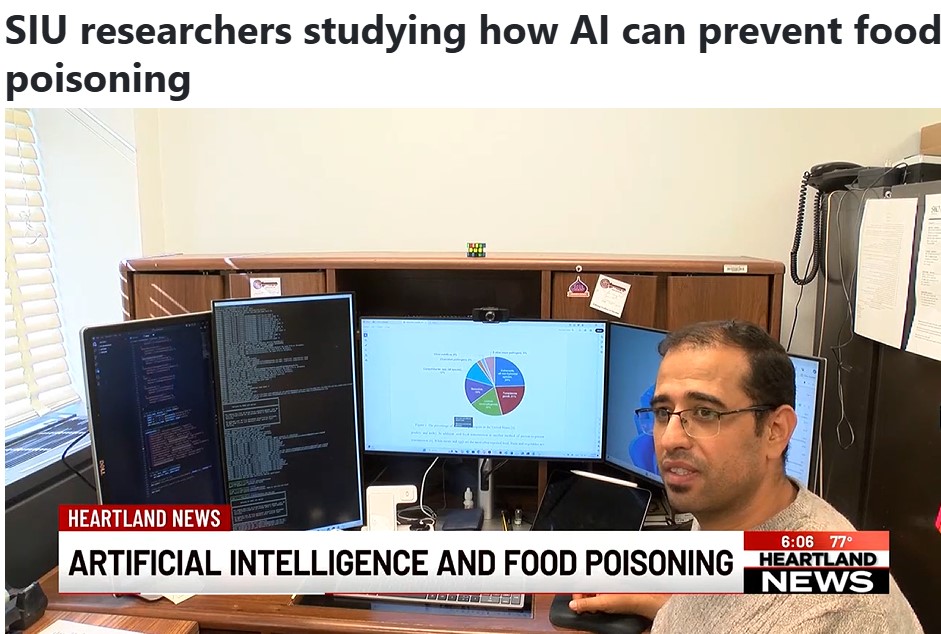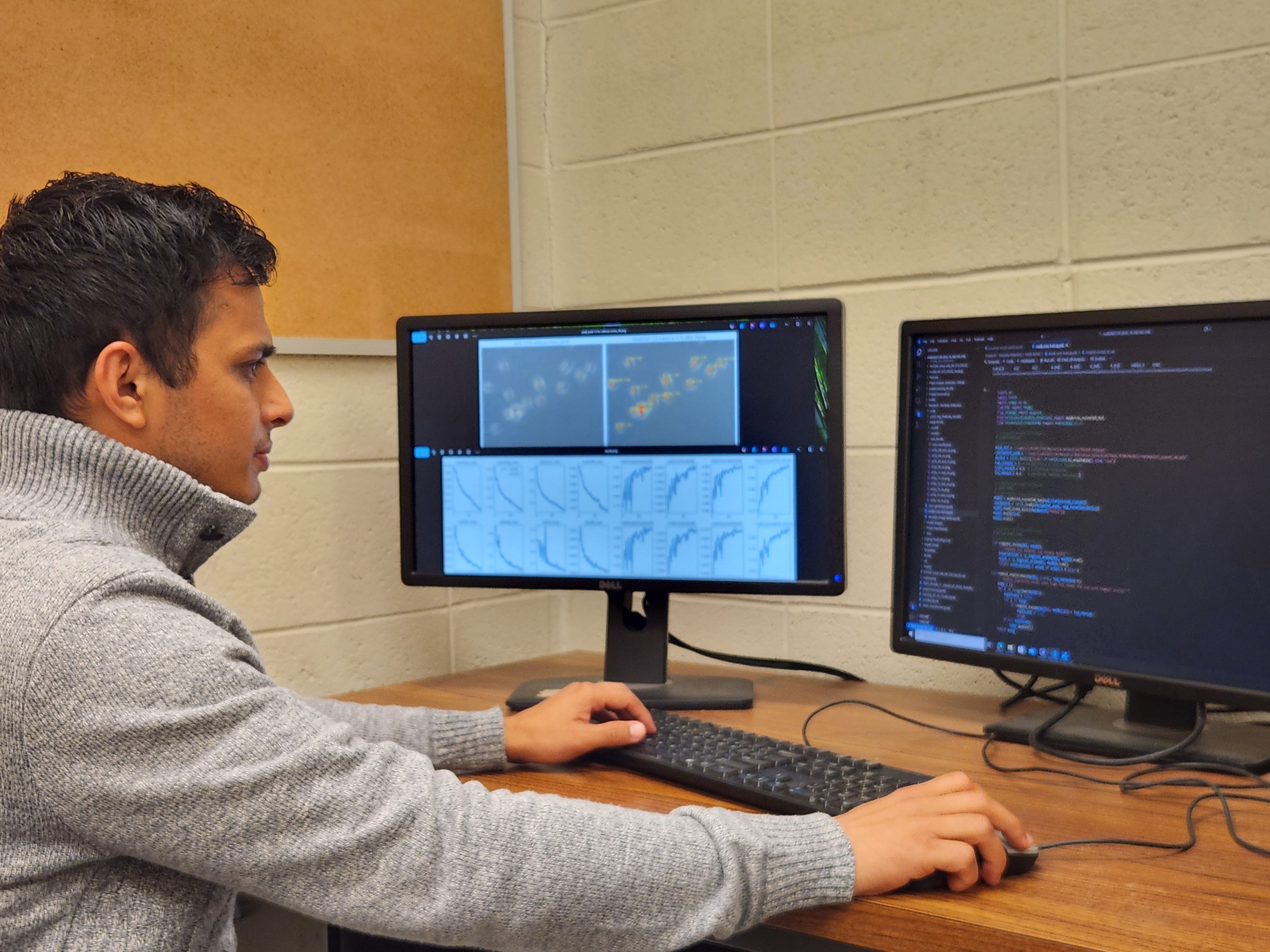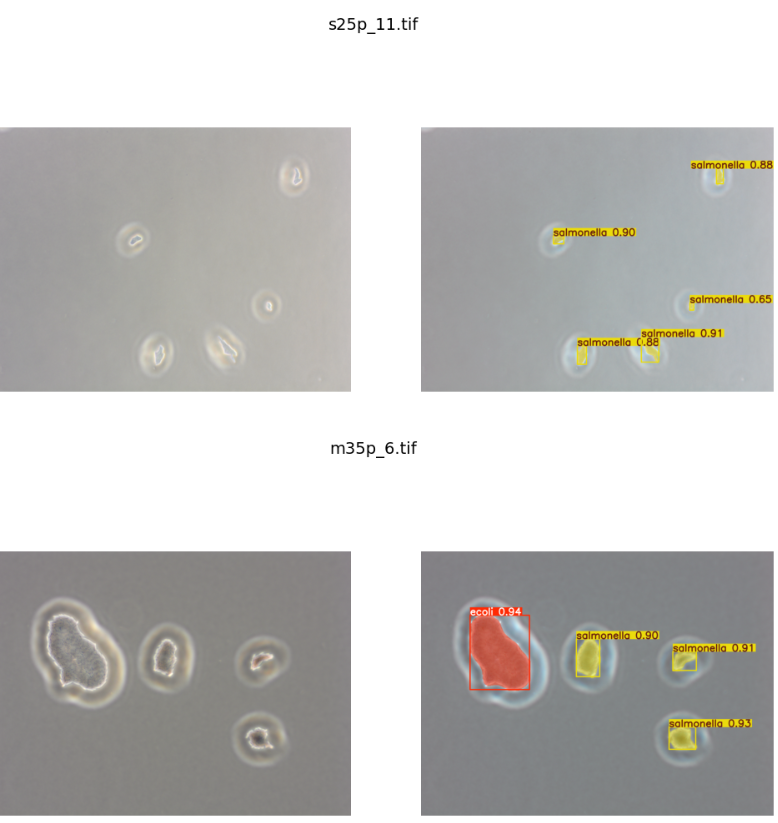Enhancing Food Safety
/https://siu.edu/search-results.php
Last Updated: Oct 29, 2025, 09:42 AM
CARBONDALE, Ill. — August 2024

A research team led by Dr. Anas AlSobeh from the School of Computing at Southern Illinois University Carbondale is pioneering a novel approach to food safety through artificial intelligence and advanced microscopic imaging. The project, titled “Enhancing Food Safety: Rapid Detection of Salmonella in Onions Using Microscopic Imaging and Artificial Intelligence”, seeks to revolutionize how bacterial contamination is identified and managed within the food supply chain.
Supported by the U.S. Department of Agriculture’s National Institute of Food and Agriculture (USDA–NIFA), this two-year, $150,000 initiative (2024–2026) aims to develop a deep learning system capable of detecting Salmonella with high speed and precision from microscopic images of onion samples. The system integrates high-resolution imaging with AI-based classification models to enable rapid and reliable identification of foodborne pathogens — a vital step toward preventing outbreaks and ensuring public health.

AI Meets Microscopic Imaging
Traditional foodborne pathogen detection methods — including culturing, plating, and biochemical testing — can take up to five days to produce definitive results, often after contaminated products have already entered the food supply. Dr. AlSobeh’s team is tackling this challenge by combining microscopic image analysis with deep learning architectures that can detect bacterial presence in a fraction of the time.

The team’s deep learning pipeline leverages convolutional neural networks (CNNs) and attention-based mechanisms to distinguish between bacterial species with high precision. These algorithms analyze minute differences in cell morphology and growth behavior, identifying contamination patterns that are often invisible to the human eye.
From Microscopic Data to Safer Food
Using thousands of annotated microscopy images collected at SIU, the researchers are training AI models to recognize contamination signatures under varying environmental conditions. This approach not only increases detection accuracy but also enhances model reliability in real-world food-processing environments, where lighting, temperature, and biological variability can affect sample appearance.

The developed system achieves over 90% detection accuracy while maintaining interpretability through explainable AI (XAI) methods. These techniques visualize which image regions influence the model’s decisions, making the results transparent and trustworthy for use in regulated laboratory and industrial settings.
“Our goal is to build intelligent tools that empower scientists and food producers to detect contamination early, respond faster, and protect consumers more effectively,”
— Dr. Anas AlSobeh, Principal Investigator
Collaboration and Impact
The interdisciplinary team includes faculty from both the School of Computing and the College of Agricultural, Life, and Physical Sciences, combining expertise in artificial intelligence, microbiology, and food systems. Together, they are creating a foundation for next-generation inspection technologies that could transform food safety protocols nationwide.
The anticipated impact extends beyond onions and Salmonella: the framework can be adapted for other foodborne pathogens, helping regulators and producers move toward faster, AI-assisted safety testing across the supply chain.

Funding Agency: U.S. Department of Agriculture (National Institute of Food and Agriculture)
Project Period: August 2024 – August 2026
Principal Investigator: Dr. Anas AlSobeh, School of Computing, SIU Carbondale
Media Contact: School of Computing Communications • socinfo@siu.edu
- Type: Conference Papers and Presentations Status: Accepted Year Published: 2025 Citation: AlSobeh, A., AbuGhazaleh, A., Dhahir, N., Rababa, M. "XAIPath: Temporal-Environmental Explainable AI Framework for Co-Contaminated Food Pathogen Detection in Microscopic Imaging." 54th International Conference on Parallel Processing Companion (ICPP '25 Companion), San Diego, CA, September 8 -11, 2025. Status: Accepted. https://camps.aptaracorp.com/ACM_PMS/PMS/ACM/ICPPCOMPANION25/30/5b06d196-72fc-11f0-957d-16ffd757ba29/OUT/icppcompanion25-30.html#
- Type: Conference Papers and Presentations Status: Submitted Year Published: 2025 Citation: Koirala, B., AlSobeh, A., Dhahir, N., AbuGhazaleh, A. "Background-Aware Instance Segmentation for Early Detection of E. coli and Salmonella in Time-Stamped Microscopy Images." Submitted to: 24th International Conference on Machine Learning and Applications (ICMLA), December 34, 2025. Status: Submitted.